Wine and KAFKA (1991, Steven Soderbergh)
Paired with something brooding, then something bright and wild.
On Thursday, our latest podcast episode is going to cover director Steven Soderbergh’s first mainstream big-budget feature, OUT OF SIGHT (1998) with two very special guests, playwright Lauren Smerkanich and screenwriter Kevin A. Rice.
In preparation, I wanted to write about another fascinating entry in Soderbergh’s filmography, his second following his breakout debut SEX, LIES, AND VIDEOTAPE, the bizarre and largely forgotten KAFKA starring Jeremy Irons.
Back in the 90's I remember renting KAFKA from a Hollywood Video - the trailer and VHS cover art were simply too intriguing to resist! But I couldn't recall anything from actually having watched it. I still recall the trailer and cover art, but the movie itself glissaded off me, friction-free.
Watching it a second time now, I figure I was too young to appreciate half of what it was doing. KAFKA is a curious sophomore film in search of real meaning. It does a lot. It has a unique rhythm and pace; it’s visually captivating; I found it enthralling; but the viewer also has to fill in more than a handful of blanks.
Kafka is something akin to a Copy Typist, hammering out copies of documents on old-fashioned typewriters for a massive Company (yes, with a capital-C) run by Alec Guinness in one of his final roles. Kafka of course is also trying to make it as a fiction writer during his off hours, and a horse is a horse oh yes of course is writing a story about a man who transforms into a cockroach.
When a co-worker of his is murdered, Kafka is drawn to the case, perhaps more intensely than seems natural. Likewise, the authorities are oddly focused on Kafka as a suspect who knows more than he’s letting on.
The first 10 or so minutes of KAFKA presents itself like a movie TRYING to be something, but mostly just going through the motions. It all feels like a horrible misfire before it’s even begun. But soon it settles into its own skin and becomes the thing: black and white, expressionistic, there's something of a narrative-driven video game at work here: a protagonist's POV as he wanders through an evocative setting picking up clues to a larger-than-real-life conspiracy. All those not Kafka are NPC's with lines that exist to give our hero said clues. (Though props to the brief, otherwise pointless scene of Kafka following Joel Gray into the bathroom to discover a sort-of secret that has no real bearing on anything else.)
The choice to switch to full color for the climax is kinda genius. It takes you aback. It discombobulates the viewer as much as the character of Kafka in the movie must be, too.
And the themes at play here are strong - foremost among them a juxtaposition of the artistic exploration of mankind's potential vs. that of physical science using exploitation and enslavement to achieve the same. A writer's work, a filmmaker's output, a musician's lyricism are all scrutinized and quickly censored, but not the literal harm done by powerful elites treating those under them as playthings. Independence and unique character are devalued, while crafting a perfectly productive automaton is revered. This is a pulp-extreme copy of our own reality.
The film is almost painfully inspired by Terry Gilliam’s BRAZIL (1985). It’s a sterile, steampunk version of own world - in Brazil it’s the future, while here it’s the past - where an everyman is roped into an underground cause against the authorities thanks to a beautiful woman. The castle where he finally uncovers the scientists and the conspiracy utilizes imagery that harkens back to the dysmorphic grotesquerie of BRAZIL.
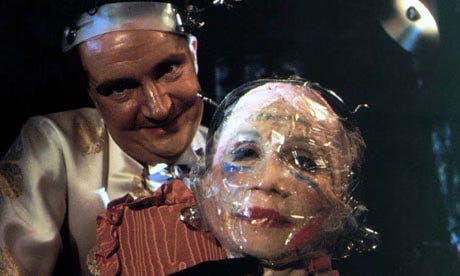
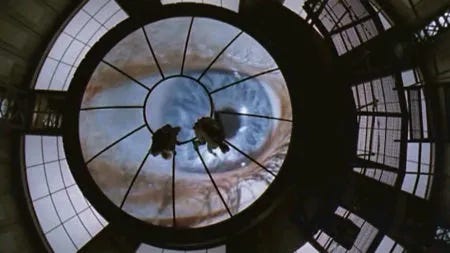
If there is one arguable weakness to KAFKA, it's the choice to make the protagonist the literal author, Franz Kafka. There never seems to be a true purpose or payoff to this. No amount of peppering in clever elements of Kafka's real life manage to turn the use of his character into something resonant.
This is something director Steven Soderbergh seems to acknowledge in his recent recut of the film, re-titled "MR. KNEFF" (no more "Kafka"!) where he aso cut 15 mintues, removed all spoken dialogue, and re-colored the film to be entirely sepia-toned. This version of the film hasn’t been released outside of special screenings yet, but apparently Soderberg was never happy with KAFKA as it was released, and not because of studio interference, just because in retrospect even he decided it was a misfire.
But I have to disagree with the director: there's something remarkable in the use of the historical figure in such an outlandish genre yarn, that moves at the slowest of slow burn paces, before exploding into BRAZIL-style shenanigans at the end. I can safely say there is nothing else quite like it in film history. Sticking to the theme of the film itself, that alone makes it worth its own existence.
PAIRED WITH (The Wines)
For the black and white first two thirds of Kafka, I recommend something brooding, rich, red, dark, something you’ll sip slowly and contemplate.
A California Petite Sirah was my first choice, though a Nebbiolo or Sagrantino from Italy could work as well, a Super Tuscan, or even a Madiran (Tannat) from France. A young Left Bank (and so Cab Sauv dominant) Bordeaux.
Then for the final third, as the movie leaps into full color, an acidic Grenache or pyrazine-laden (astringent) Cab Franc. Something that turns zippy and wild for the sudden pulp adventurousness that befalls. Find something outside of your comfort zone, just like Kafka does by jouneying into the full color castle. Something that challenges, and hits hard.


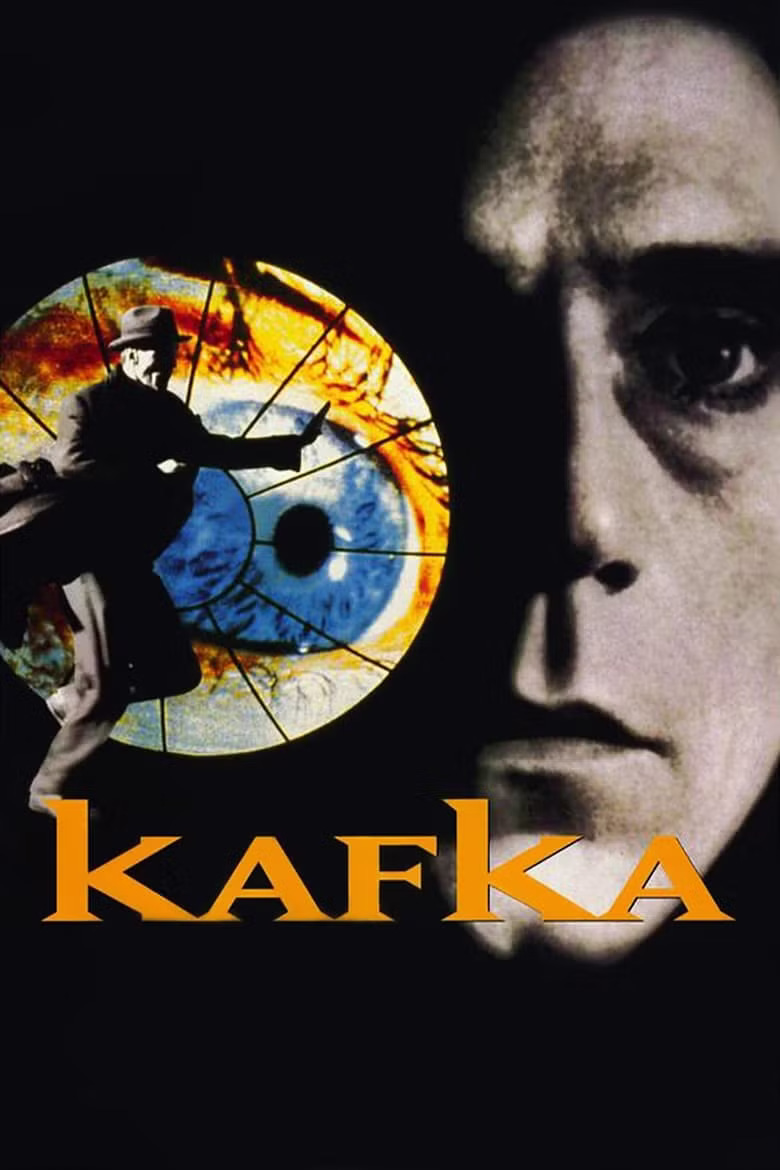
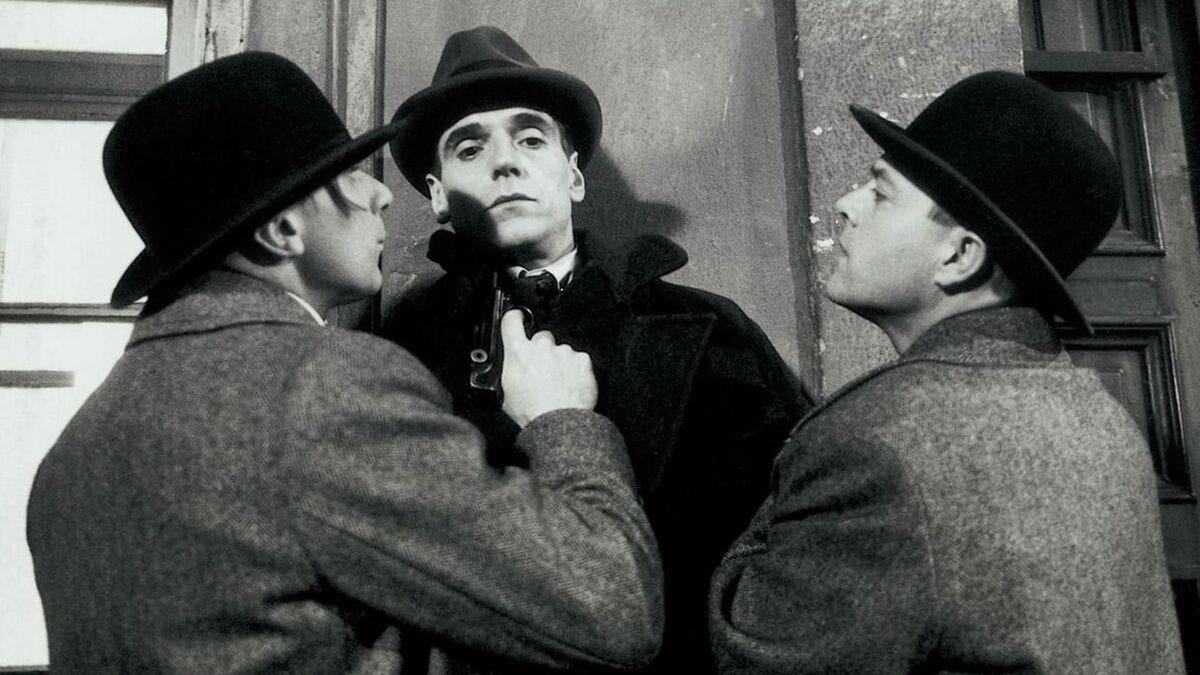
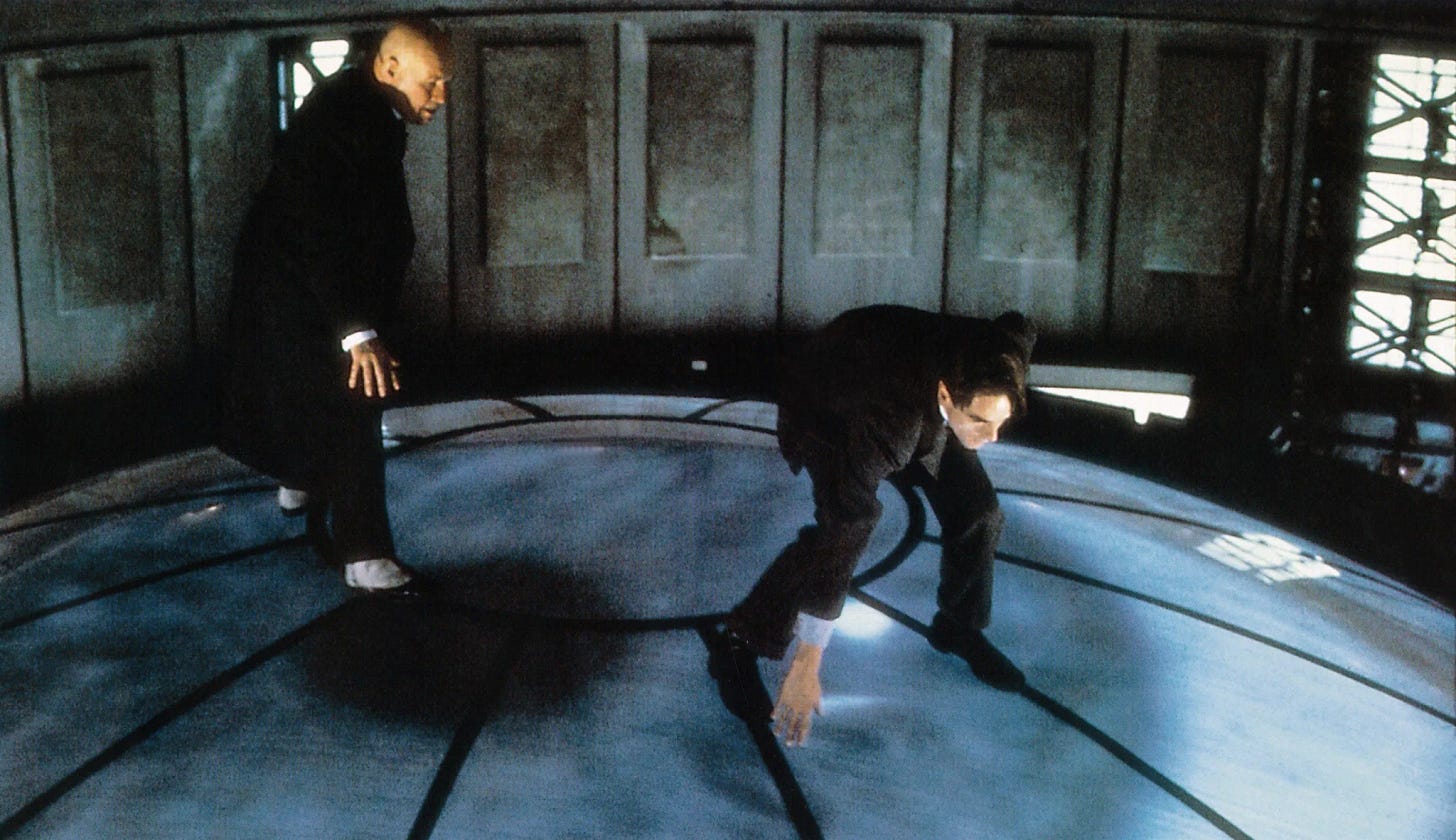
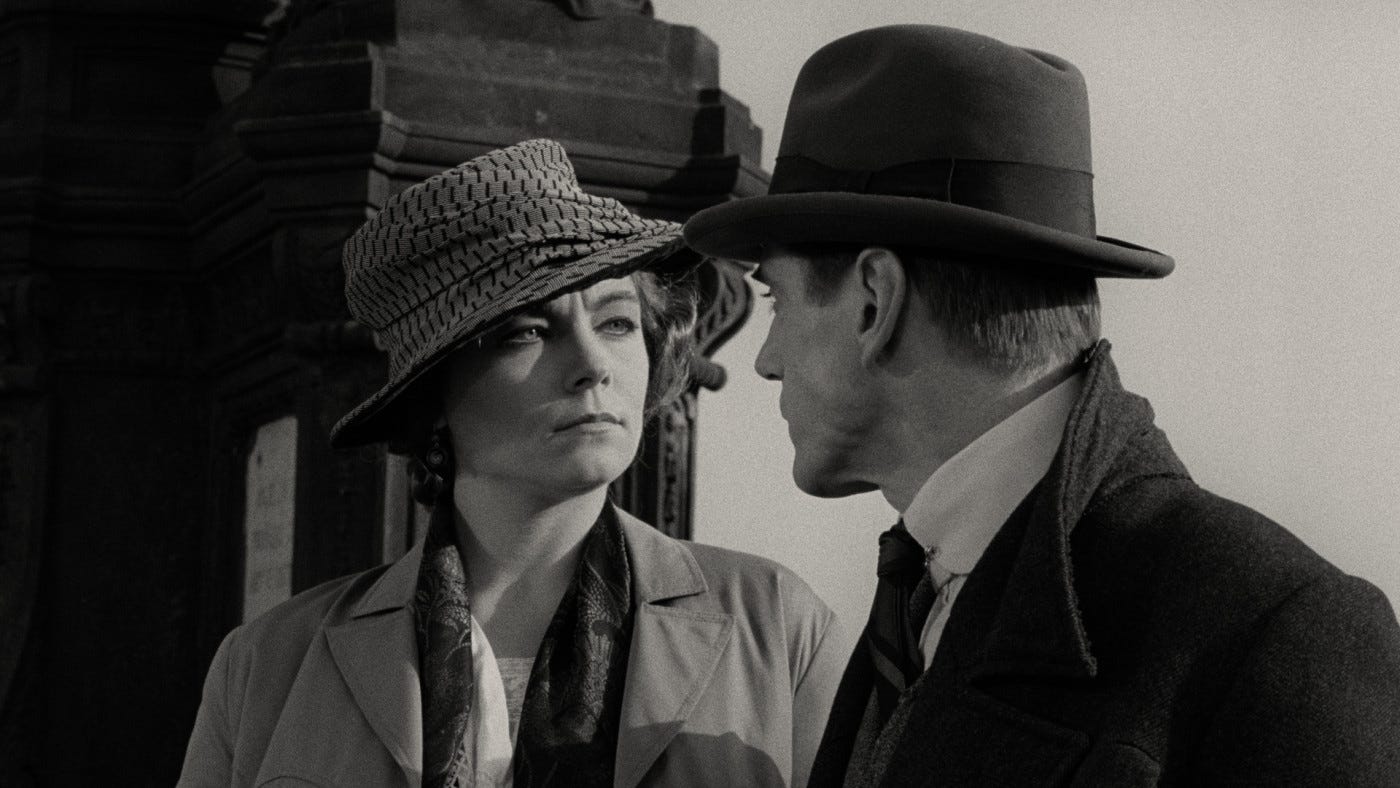
KAFKA was the last movie I watched before I went to prison. Irony, I guess.
Fromtheyardtothearthouse.substack.com